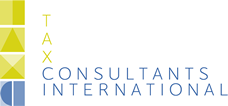Payroll & HR services Global Mobility Services Corporate compliance International labor and cross border assignments Payroll & HR Tax compliance
The taxation of employees in the Netherlands is effectuated through the withholding payroll taxes (pay as you earn), a prerequisite for personal income tax and social insurance contributions.
The taxes and levies due on account of employees in the Netherlands
The taxation of employees in the Netherlands consists of the levy of personal income tax and social insurance contributions, as the Dutch social security contributions consist of national and employee social insurance contributions.
The (designated) employer has a withholding obligation for taxes due over the employees' salary (wage tax) and the social security contributions that become due over the employees' salary.
The national social insurance contributions are due by every Dutch individual taxpayer, regardless of income, and are integrated into the income and wage tax levy.
The employee social insurance contributions are only due by the employer (and for a small part by the employee) on account of qualifying employment income. The levy of the employee insurance contributions is separated from the income tax with its taxable basis and rates.
Employees temporarily assigned to the Netherlands may get an exemption from the Dutch social insurance system under applicable treaties and EU regulations.
Personal income tax
In the Netherlands, the personal income tax year is the same as the calendar year.
Tax Residency
Whether a taxpayer is considered a resident or a non-resident taxpayer is based on facts and circumstances. The center of vital life interests is decisive in this respect and circumstances as where the individual has residency and where the direct family resides. In this respect, the Netherlands does not have a physical day of presence test, but it may be considered part of the facts and circumstances to determine residency.
Resident taxpayers
Resident individuals are subject to individual income tax over their worldwide income. Income earned outside of the Netherlands may qualify for an exemption by applicable tax treaties or the Dutch unilateral rules on double taxation.
Non-resident taxpayers
Non-residents are only subject to individual income tax on certain types of Dutch source income, including:
- Income from employment
- Real estate situated in the Netherlands
- Income derived from shareholdings in a Dutch corporation provided that the interest exceeds 5% of the shares.
Special rules apply to some categories of taxpayers, such as sportsmen or artists.
A non-resident taxpayer earning a certain Dutch source income can opt for the status of a resident taxpayer under certain stringent conditions. This is done to qualify for personal allowances and deduction of certain expenses generally unavailable for non-resident taxpayers.
Under most tax treaties, a foreign employee assigned to the Netherlands by a foreign employer is exempt from Dutch income tax/wage tax if the employee's working days in the Netherlands do not exceed 183 days in a tax year. This rule generally does not apply if the foreign employee has a Dutch employer. Special rules apply to foreign-based employment agencies.
Income taxation per "box"
The Dutch individual income taxation is based on three types of income, included in separate boxes of income. Each box has its own rules for computing the taxable base and its tax rate:
Box 1: taxable income from work and home; this is taxable against progressive tax rates. See box-1-the-income-from-labor-and-main-residence-box-1 and Dutch tax rates for individuals.
Box 2: taxable income from substantial shareholdings; this is taxable against a fixed rate over actual income from the shares, see under box-2-income-from-substantial-shareholdings-, and under Dutch tax rates for individuals.
Box 3: income from savings and portfolio investments; this is taxable against a fixed rate, over fictitious income calculated as a percentage of the total value less allocable debt. See box-3-the-income-from-savings-and-investments-inkomen-uit-sparen-en-beleggen and under Dutch tax rates for individuals.
Each form of income is taxed in one box only. For example, all elements of employment income - such as salary, bonus, company car, and benefits in kind - are subject to income tax in Box 1. There is supposed to be no double taxation. If the income in one box is negative, this cannot be offset against positive income in another. However, it is possible to offset the negative amount against a positive income in the same box in past or future years.
For applicable rates, please consult our publication, Dutch Tax Rates for Individuals.
Wage tax and national social insurance contributions
Wage tax or wage withholding tax ('Loonheffing') is an advance payment for the individual income tax. Wage tax and national social insurance contributions ('volksverzekeringen') are levied jointly on income from employment.
Virtually all Dutch employers, including non-resident employers with a (deemed) permanent establishment in the Netherlands, are obliged to act as a withholding agent and to withhold wage tax and national social insurance contributions from salary payments.
The rates are progressive and depend on the bracket of income. We kindly refer to the page The withholding tables in the Netherlands. Wage tax rates are equal to individual income tax rates, although, through the much broader taxable basis of the income tax, the ultimate effective rates may deviate. For many individuals, the wage tax is final.
Depending on the (level of) income from employment and other criteria, individuals may have the legal obligation to file an income tax return. The filing of a tax return is followed by a tax assessment in which the wage tax already paid is offset against the final income tax liability.
For more information about the levy of wage taxes, please consult our publication, The Payroll Obligations in the Netherlands.
Employee social insurance contributions
In addition to the national social insurance contributions that form part of the lowest income tax rate, social security contributions ('werknemersverzekeringen') on employment income are payable by employers. The contributions are calculated on gross salaries (with a maximum amount), fewer pension premiums withheld and adjusted for some technical differences with the income for tax purposes.
The rates for employee insurance are partly dependent on the business. For more information, please consult The Dutch employee's social security insurance.
Income tax rates
For an overview of the current rates for the Dutch personal income tax and the national social insurance contributions, we refer to our publication Dutch tax rates for individuals.
Expatriate incentive - the 30%-regulation
The Dutch tax system provides a special incentive for foreign employees assigned to the Netherlands. The incentive allows the employer to pay the employee a tax-free allowance of up to 30% of gross salary. For more information about this incentive, we refer to our publication Expatriate Incentive: the 30% Regulation.
Employee stock option plans
The Dutch tax system provides special rules for (foreign) employee stock option plans.
Employee options are considered part of the employee's taxable wages. In most cases, the employer has a withholding obligation, even if the options are granted by another (group) company. Special rules apply for determining against which value and at what moment the options are taxed.
For more information about this subject, we refer to the page The taxation of employee stock options in the Netherlands.
What can we do for you?
We provide HR assistance and payroll services to employers with an international workforce. We can also assist with preparing the Dutch income tax return of Dutch employees and handle the associated compliance. Most of this work is done based on fixed price lists.
If you are interested in our services, contact us via e-mail or call our office in Amsterdam at +31 (20) 5709440 or our office in Rotterdam at +31 (10) 2010466.


.png)








